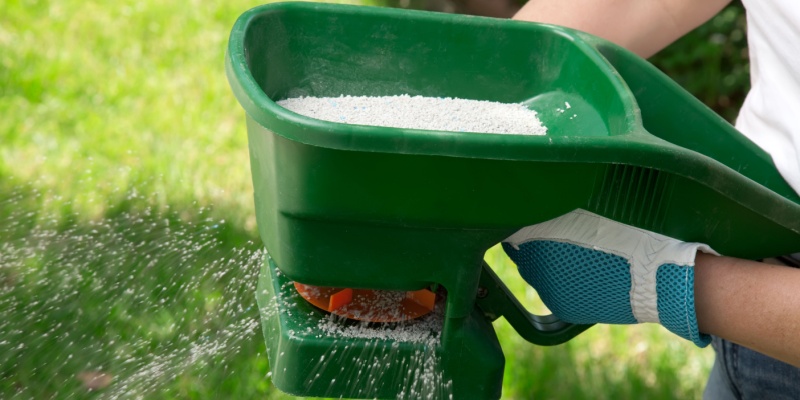Fertilizing your lawn is essential for maintaining its health and appearance, but timing is crucial to achieving the best results. Fertilizing at the right time ensures that your grass gets the nutrients it needs to thrive. Here’s a guide on when to fertilize your lawn for optimal growth and health:
Understanding Lawn Fertilization Timing
Different types of grass and climates require different fertilization schedules. Generally, lawns benefit from fertilization during their active growing periods. Here’s a breakdown of the best times to fertilize your lawn:
Cool-Season Grasses
Cool-season grasses, such as Kentucky bluegrass, fescue, and ryegrass, thrive in cooler temperatures and are commonly found in northern regions.
- Early Spring:
As soon as the grass begins to green up, typically in late March to early April, an application of balanced fertilizer helps jumpstart growth after winter dormancy.
- Late Spring:
A second application in late May to early June supports continued growth and prepares the lawn for summer stress.
- Early Fall:
Fertilizing in early fall, around September, helps the lawn recover from summer stress and promotes root development.
- Late Fall:
A late fall application, often in November, provides nutrients that help the lawn survive the winter and prepare for spring growth.
Warm-Season Grasses
Warm-season grasses, such as Bermuda, St. Augustine, and zoysia, thrive in warmer temperatures and are common in southern regions.
- Late Spring:
When the grass starts to green up in late April to early May, an application of fertilizer supports healthy growth.
- Early Summer:
A second application in June helps maintain the lawn’s health during the peak growing season.
- Late Summer:
Fertilizing in late August provides nutrients that support the lawn as it prepares for cooler weather.
- Early Fall:
An early fall application, around September, helps strengthen the grass for the winter months.
Factors to Consider
1. Soil Testing:
Before starting any fertilization schedule, it’s a good idea to test your soil to determine its nutrient levels and pH. This helps in selecting the right type of fertilizer and application rates.
2. Weather Conditions:
Avoid fertilizing during extreme weather conditions, such as droughts or heavy rains. Fertilizer can burn the grass during droughts, while heavy rains can wash it away before it’s absorbed.
3. Lawn Health:
Consider the current health of your lawn. If it’s struggling with weeds, pests, or diseases, address these issues before fertilizing to ensure the nutrients are effectively used by the grass.
4. Type of Fertilizer:
Choose the right type of fertilizer for your lawn’s needs. Slow-release fertilizers provide a steady supply of nutrients over time, while quick-release fertilizers offer immediate benefits but may require more frequent applications.
Tips for Effective Lawn Fertilization
1. Follow the Label Instructions:
Always read and follow the instructions on the fertilizer label. Over-fertilization can damage your lawn, while under-fertilization may not provide the desired results.
2. Use the Right Equipment:
Use a broadcast spreader or drop spreader to apply the fertilizer evenly. Uneven application can result in patchy growth and nutrient deficiencies.
3. Watering:
Water your lawn thoroughly after fertilizing to help the nutrients penetrate the soil and reach the grass roots.
4. Regular Maintenance:
Combine fertilization with other lawn care practices, such as mowing, aeration, and weed control, for the best results.
Timing is crucial when it comes to lawn fertilization. By understanding the best times to fertilize your specific type of grass and considering factors such as soil health and weather conditions, you can ensure your lawn gets the nutrients it needs to thrive. Following a well-planned fertilization schedule will help you achieve a lush, green lawn. If all of this seems like to much, you have the option of getting help from a pro. Reach out to Weed Busters to set up professional lawn fertilization services.

